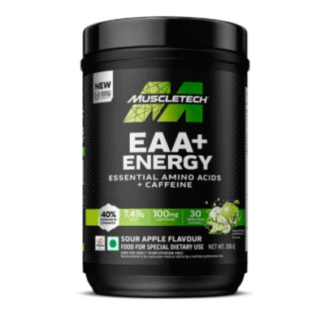Your Daily Fitness Routine
In today’s fast-paced fitness world, supplements have become an important part of many people’s routines. Whether you want to boost your energy, improve muscle recovery, or support overall health, the right supplements can help. However, it’s important to add them safely to avoid any side effects and truly benefit from them. Here’s a complete guide to help you!
Choosing the right supplements and using them correctly can make a noticeable difference in your performance, recovery, and long-term health. With so many options available in the market, it’s easy to get confused or overwhelmed. That’s why understanding your body’s needs, doing proper research, and following a structured approach is crucial.
Supplements are not magic pills — they are meant to support your diet and exercise efforts, not replace them. A strong foundation of proper nutrition, regular workouts, good hydration, and enough sleep should always come first. When used wisely, supplements can help you fill nutritional gaps, enhance your workouts, and speed up your fitness journey.
In this blog, we’ll walk you through important tips to safely include supplements in your daily fitness routine, so you can achieve your goals effectively and without risk.
1. Understand Your Fitness Goals
Before choosing any supplement, be clear about your fitness goals. Are you aiming for weight loss, muscle gain, endurance, or general wellness?
Different goals require different supplements. For example:
Protein powders help with muscle building and recovery.
BCAAs (Branched-Chain Amino Acids) improve workout performance.
Fat burners assist with weight management.
Multivitamins fill nutritional gaps for overall health.
Being goal-specific helps you avoid unnecessary products and focus only on what you truly need.
2. Focus on a Balanced Diet First
Supplements are meant to support your diet, not replace it.
A balanced diet full of fruits, vegetables, proteins, and healthy fats should be your foundation.
Only after ensuring your basic nutrition needs are met should you consider adding supplements to your routine.
A healthy diet provides natural vitamins, minerals, and nutrients that work together better than any supplement can.
3. Choose High-Quality Products
Always buy supplements from trusted and reputable brands.
Look for products that are third-party tested for purity and quality to ensure they are safe and effective.
Avoid supplements with too many artificial additives, fillers, or unnecessary ingredients.
Tip: Check for certifications like GMP (Good Manufacturing Practice), NSF Certified, or Informed Choice when selecting a product.
4. Start with One Supplement at a Time
When introducing supplements to your routine, always start with one at a time.
This allows you to monitor how your body reacts and easily identify any side effects or issues.
Starting multiple supplements at once can make it difficult to track what’s helping or causing problems.
Slow and steady wins the race when it comes to safe supplementation.


5. Follow the Recommended Dosage
Taking more than the suggested amount will not speed up your results — it can actually be dangerous.
Always read the label carefully and stick to the recommended dosage.
Overconsumption can lead to serious side effects like liver damage, kidney strain, or hormonal imbalances.
When in doubt, always consult a healthcare professional.
Consistency and correct dosage bring the best results, not overdoing it!
6. Time Your Supplements Right
Timing can make a real difference in supplement effectiveness.
Here are some basic timing tips:
Pre-workout supplements: Take 20–30 minutes before exercise for the best boost.
Protein shakes: Ideal post-workout to aid muscle recovery.
Multivitamins: Best taken with meals to improve absorption.
Following the right schedule ensures you get the maximum benefit from each supplement.
7. Stay Hydrated
Some supplements, especially those high in protein or pre-workouts containing caffeine, require you to drink extra water.
Staying hydrated helps digestion, prevents bloating, reduces the chance of side effects, and keeps your energy levels stable.
Make water your best workout buddy along with your supplements!
8. Consult a Healthcare Professional
If you have any medical conditions, allergies, or are on medication, always consult a doctor or a certified nutritionist before adding supplements.
They can recommend the right type, dosage, and timing based on your personal health profile.
Self-medicating with supplements without proper advice can sometimes do more harm than good.
Always put your health first by seeking professional guidance!
















